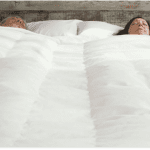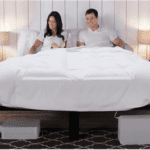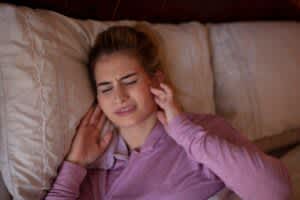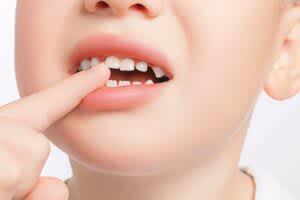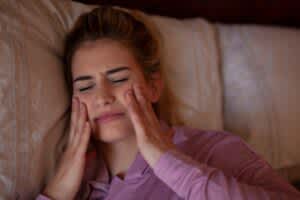If you grind your teeth at night, someone you share a room with might hear it and point it out to you. Or you might wake up with jaw tension, pain, or clicking.
Many people occasionally grind their teeth during sleep. Most common during childhood, teeth grinders often outgrow it when they get older. About 15% to 40% of children grind their teeth during sleep, as opposed to 8% to 10% of adults.
Bruxism is the medical term for teeth grinding. Although bruxism can be uncomfortable, it is a common and highly manageable condition that seldom requires medical treatment. We discuss common causes of bruxism, complications, and how to address it.
What Is Bruxism?
Bruxism occurs when a person repeatedly tenses their jaw muscles, causing their teeth to clench and grind. The behavior results in an audible sound which can be disruptive to bed partners. Though bruxism can occur during waking hours, it most commonly occurs during sleep and is sometimes referred to as sleep-related bruxism.
People who grind their teeth at night are often unaware that it is happening. Most episodes occur during normal, brief night awakenings called micro-arousals. More than 80% of bruxism-related micro-arousals occur during the first two stages of sleep.
What Causes Bruxism?
It is not entirely clear what causes bruxism, though research suggests some factors may increase the likelihood that a person may experience nighttime tooth grinding.
- Young age: By the time they are six years old, up to 30% of children have experienced sleep-related bruxism. Experts are unsure of why the condition is more common in kids than adults, although it may be connected to discomfort from an emerging or loose tooth.
- Medication: Some people report that certain medications cause or worsen bruxism, including antidepressants and stimulant drugs used to treat attention deficit hyperactivity disorder (ADHD). However, researchers have not established a conclusive link between any medications and teeth grinding at night.
- Sleep disorders: People who have sleep disorders like obstructive sleep apnea or parasomnias such as sleepwalking may be more likely to develop bruxism.
- Stress and anxiety: Bruxism is more common in people who experience a lot of anxiety and stress. Some individuals report that they grind their teeth more frequently during stressful periods in their lives.
- Neurologic and mental health conditions: A variety of health conditions are associated with bruxism, including ADHD, some psychiatric disorders, Down syndrome, Rett syndrome, and cerebral palsy.
- Genetics: While there is no definitive connection between genes and bruxism, up to 50% of people with the condition have at least one close family member who grinds their teeth.
- Caffeine, tobacco, or alcohol use: People who use tobacco or frequently drink caffeine or alcohol are more likely to experience bruxism.
- Personality type: People who are highly competitive or motivated may have a higher frequency of sleep-related bruxism.
- Loud snoring: Research suggests a correlation between snoring and sleep-related bruxism.
What Are the Symptoms of Bruxism?
People with sleep-related bruxism may experience a variety of symptoms, while others have no symptoms at all.
One of the more obvious symptoms of sleep-related bruxism is a grating or grinding sound. Caregivers and bedpartners are often the first to identify bruxism because of the noise created by grinding teeth.
Other symptoms include pain or clicking when the individual moves their jaw as well as morning headaches. The headaches associated with bruxism may feel similar to a tension headache. Teeth grinders can also injure their tongue or lips.
Over time, sleep-related bruxism can also result in dental complications. Frequent, severe teeth grinding can crack or wear down teeth and damage dental work. Individuals with chronic bruxism may find that their teeth become sensitive or loose due to wear, and they may need to have extensive dental work.
When to See a Doctor or Dentist
Waking up with headaches, jaw pain, or tooth pain or having a bed partner who has heard you grinding your teeth are all signs that it may be helpful to contact your doctor or dentist. Likewise, if you frequently hear a grating sound during sleep in your child, contact their pediatrician.
You should also see a doctor or dentist if you have been previously diagnosed with a sleep disorder and are experiencing symptoms of bruxism.
Diagnosing Bruxism
Doctors can typically diagnose bruxism based on a person’s symptoms. The sound of teeth grinding, combined with dental or jaw problems, usually suggests that an individual has bruxism.
Typically, testing is not required to diagnose sleep-related bruxism, though doctors may perform tests to rule out other conditions and sleep disorders. In the event a health care provider feels testing is necessary, they may order a sleep study.
Sleep studies can be effective at diagnosing more serious cases of bruxism, although they may not be as accurate in detecting mild or occasional episodes of the behavior.
Sometimes, doctors suggest that a person undergo at-home testing to determine if they have bruxism. However, home testing is less effective than a sleep study at a sleep center because it doesn’t involve active monitoring by a technician.
How to Stop Bruxism
Treatment for bruxism usually depends on the severity and suspected cause of teeth grinding and any pre-existing health conditions you may have. Mild cases of bruxism often do not need treatment.
If treatment is recommended for bruxism, your doctor or dentist will work with you to develop a treatment plan to stop grinding your teeth aimed at preventing tooth damage and reducing pain and clenching.
As part of the treatment planning process, it is important to tell them about any pre-existing medical conditions and any medications you are taking, especially drugs that are thought to cause teeth grinding.
Behavioral and Lifestyle Changes
Because teeth grinding occurs during micro-arousals, people with bruxism are encouraged to maintain good sleep hygiene. Sleep hygiene is a term used to describe healthy habits that encourage restful, high quality sleep.
Avoiding alcohol, tobacco, and caffeine in the hours leading up to bedtime may help.
Because bruxism may be brought on by stress and anxiety, people with the disorder may consider incorporating stress relief practices such mediation, yoga, or guided imagery into their daily routine. Making time to relax in the evening may also help relieve some of the stressors of the day.
Some individuals may also find relief from practices like therapy and acupuncture, though they have yet to be studied as a treatment for bruxism.
Oral Devices
Dental devices, such as bite splints, prevent tooth damage and reduce the grinding sounds associated with bruxism. While they do not stop a person from grinding their teeth, they act as a barrier between the top and bottom teeth. Bite splints reportedly improve symptoms like morning jaw pain.
Bite splints may make the symptoms of obstructive sleep apnea worse, so individuals with sleep apnea might instead use a custom-fitted option called a mandibular advancement device, or MAD.
Oral devices used to help with the symptoms of bruxism must be fitted by a dentist. Ask your dentist about the types of oral devices available and the fitting process.
Botox
Limited evidence suggests that people with severe bruxism might benefit from receiving botox injections in the cheek and jaw muscles every six months. Although the injections do not prevent teeth grinding, they may improve discomfort.
Medication
In cases where a person’s sleep-related bruxism does not respond to initial treatment, doctors may prescribe medication. Unfortunately, research suggests that medications may have little impact on the frequency of teeth grinding events and the associated symptoms.
References
The Sleep Doctor Forum: Real Experiences, Real Connections
Continue the discussion on the Sleep Doctor Forum. Connect with experts and fellow forum members on CPAP, sleep apnea, and all things sleep. A priceless resource that’s free to join.













